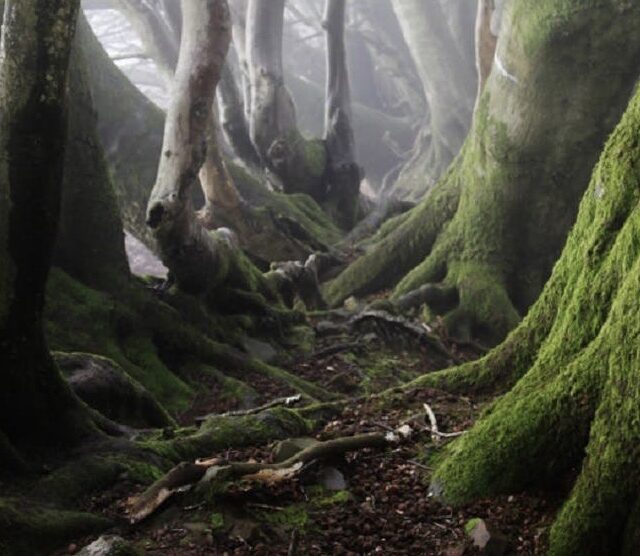The French were unsuccessful in the 1500s in their initial attempts to settle North America. It was not until 1603 when Pierre Du Gua, Sieur de Monts, a nobleman, went to King Henri IV and after much convincing was granted the rights to establish a settlement in the area called Acadia. He secured investors and in return they received the monopoly for the fur trade.1
During the summer of 1604 Sieur de Monts, Samuel Champlain, and a crew sailed from France to Acadia and decided to settle on a small island called St. Croix on the St. Croix River between Maine and New Brunswick. The harsh winter that followed decimated the party with almost half of them, about 35, dying from scurvy. Interestingly, geologists now know that that this period of time was a part of the Little Ice Age and that just a few years earlier had been the coldest since 1400 in the northern hemisphere.2 The island location they had chosen, along with climate they had no control over, proved quite deadly.
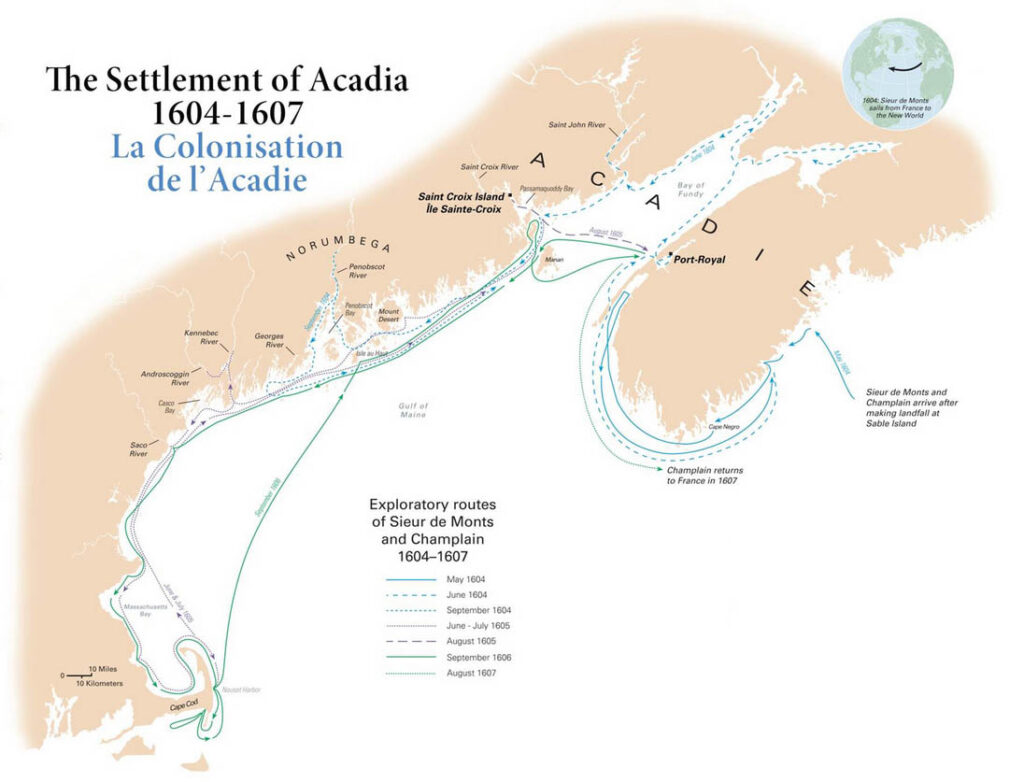
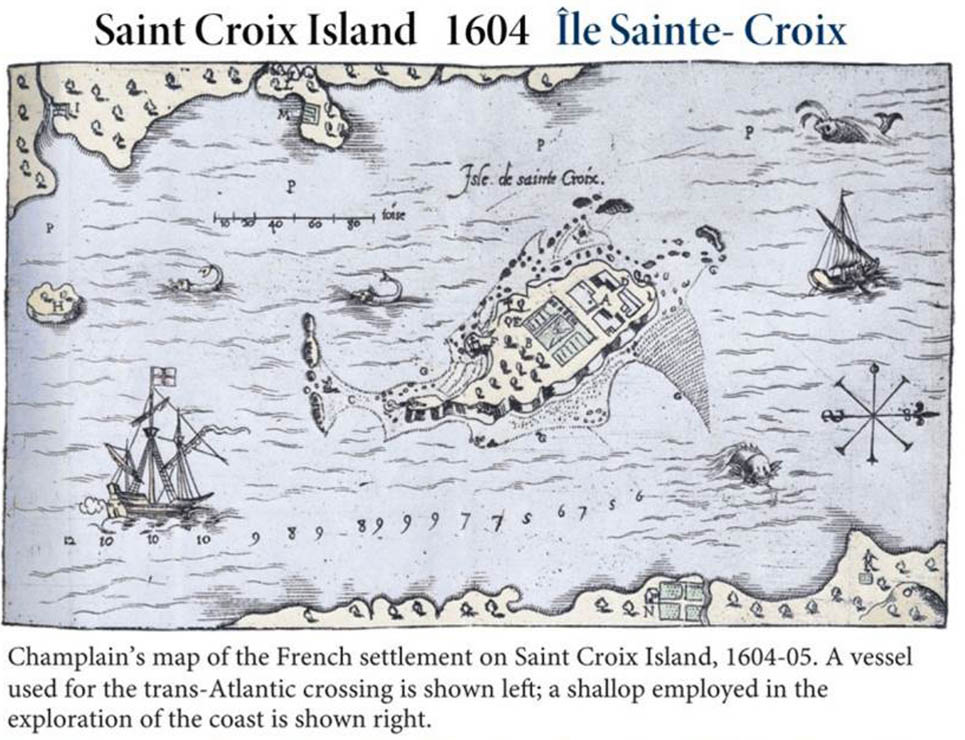
A better location was needed if the group was to survive. Upon further exploration they chose a protected harbor at the mouth of the present-day Annapolis River and named it Port-Royal. The buildings on Saint Croix Island were dismantled and moved to the new location on the other side of the Bay of Fundy. Even though it was a more superior spot to settle, another 12 men would die from scurvy during the winter of 1605-06.5
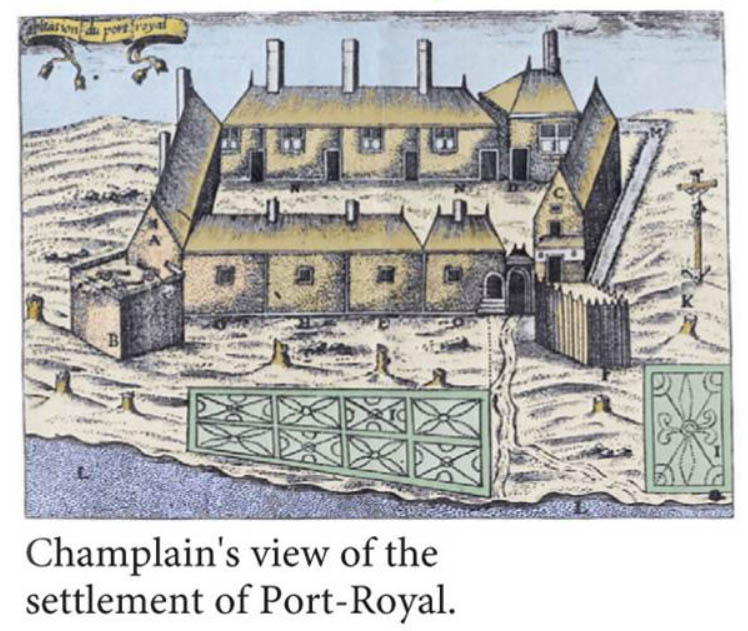
Sketches of the Port-Royal Habitation6 by Champlain show a rectangular shape 18 meters (60 feet) long and 15 meters (48 feet) wide, resembling a fortified farm hamlet as seen in France during the early 1600s. At the southwest corner of the rectangle, the men built a bastion with four guns. The structure held lodgings for the settlers according to rank. Standing alone at the northern corner of the Habitation was a small house with a high-hipped roof where Pont-Grave and Champlain lived in 1605-06. Next to their house spanned a row of smaller dwellings for gentlemen. A Catholic priest and Protestant pastor lived there, along with the surgeon Deschamps and a skilled shipwright named Champdore. On the southwest was a dormitory for skilled workmen.7
Just as the small colony seemed to be establishing itself, the French crown revoked De Monts’ charter and in the summer of 1607, all the colonists, except a caretaker, left for France.8
De Mont temporarily regained his foothold in New France, but it would prove to be a struggle. Many years would pass with a number of owners coming and going before the fledgling outpost would be begin to grow.
It would not be until the early 1630s before our ancestors would permanently settle in the area of Port Royal. The “Mothers” of our Acadian ancestors were born in France. They came between 1632 and 1635 with their companions and are some of the earliest French pioneers to settle in Acadia.9
Most of these “Mothers” are documented in the 1671 Canadian census. It is them that I want to acknowledge in this post. Not unlike the “Filles a Marier” and the “Filles du Roi” I acknowledged in earlier posts, the “Mothers” of Acadia also provide us with many more branches of our ancestry.
Currently there are around 80 of these founding “Mothers” that have been documented. Our family can attest to having 10 of these 80 as direct ancestors.
They are:
Michelle Aucoin – husband Michel Boudreau, my 10th great-grandparents on the Peltier side
Marguerite Louise Doucet – husband Abraham Dugas, my 10th great- grandparents on the Peltier side
Marie Anne Gaudet – husband Etienne Hebert, my 9th great- grandparents on the Vadnais side
Marie Gauterot – husband Michel Dupuis, my 9th great- grandparents on the Vadnais side
Martine Gauthier – husband Denis Gaudet, my 9th great- grandparents on the Peltier side
Marie Andree Guyon – husband Antoine Belliveau, my 9th great- grandparents on the Peltier side
Radegonde Lambert – husband Jean Blanchard, my 9th & 10th great- grandparents on both the Peltier and Vadnais side
Antoinette Landry – husband Antoine Bourg, my 9th & 10th great- grandparents on both the Peltier and Vadnais side
Catherine Lejeune dite Briard – husband Francois Joseph Savoie, my 9th great- grandparents on the Peltier side
Catherine Vigneault – husband Pierre Martin, my 9th great- grandparents on the Peltier side
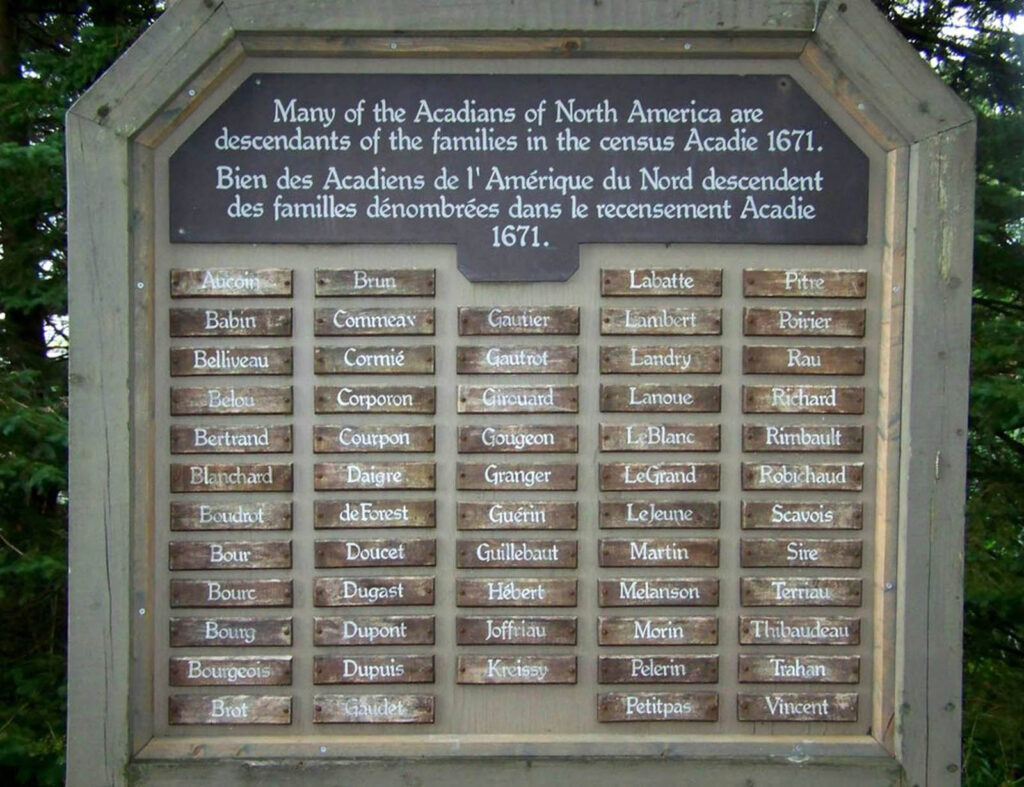
Thanks for visiting, come back soon,
Cindy
© 2023 Copyright by Cynthia Vadnais, All Rights Reserved
